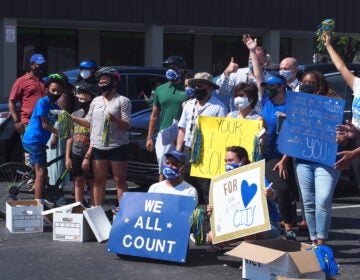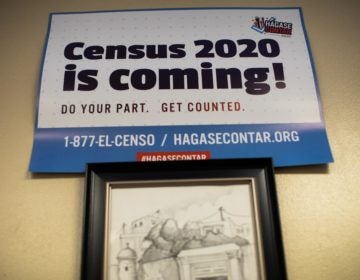At Philly 2020 census summit, neighborhood leaders train to be ‘trusted messengers’
An Action Leaders Summit in South Philly focused on how to promote and provide information about the 2020 Census in at-risk neighborhoods and communities.
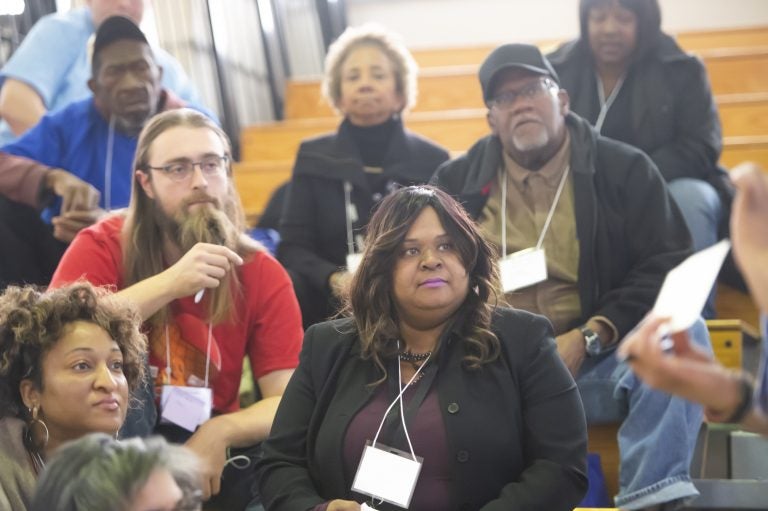
An Action Leaders Summit in South Philly focused on how to promote and provide information about the 2020 Census in at-risk neighborhoods and communities. (Jonathan Wilson for WHYY)
Jeri Green thinks the 2020 Census will be a gamechanger. And for African Americans, it might be the most important census since the Reconstruction era.
“In 1790, we were counted as three-fifths of a person,” said Green, a 2020 Census senior adviser with the National Urban League. “Who wants to be counted as zero-fifths of a person?”
She said such factors as mass incarceration, displacement and gentrification, and an aging population may create the perfect storm for the possibility of a high undercount of Black Americans.
“This is where we are,” Green said. “We are at the precipice of losing tons of money, and political representation.”

Green spoke on a Saturday morning panel hosted by the City of Philadelphia’s census outreach organization, Philly Counts. The panel was part of an all-day Action Leaders Summit at South Philadelphia High School focused on how to promote and provide information about the 2020 Census in at-risk neighborhoods and communities.
Of the roughly 300 people in attendance, the majority had previously participated in Census Champion training, Philly Counts’ recruitment effort to get as many people aware of the census as possible — how it works and what its impact is. The hope is that they will pass that knowledge on to those who lack an understanding of the census form’s importance.
Philly Counts launched its effort in January and has confronted hurdles such as misinformation about the controversial citizenship question — which will not be on the 2020 Census — and concerns about the first digital-based census. (For those who lack access to the World Wide Web or who worry about cybersecurity, it will be possible to complete the census questions on paper, too.)
But with less than five months left until Census Day on April 1, Philly Counts’ leadership summit focused on what census engagement should look like on a neighborhood-by-neighborhood level.
Green said recent U.S. Census research showed that for the U.S. Black population, fear of reprisal is one of the greatest obstacles to participation.
“In layman terms, Black folk think something bad is gonna happen if they fill out the census form, and this is what we are struggling with in our communities,” Green said. “We have to provide the proper messaging.”
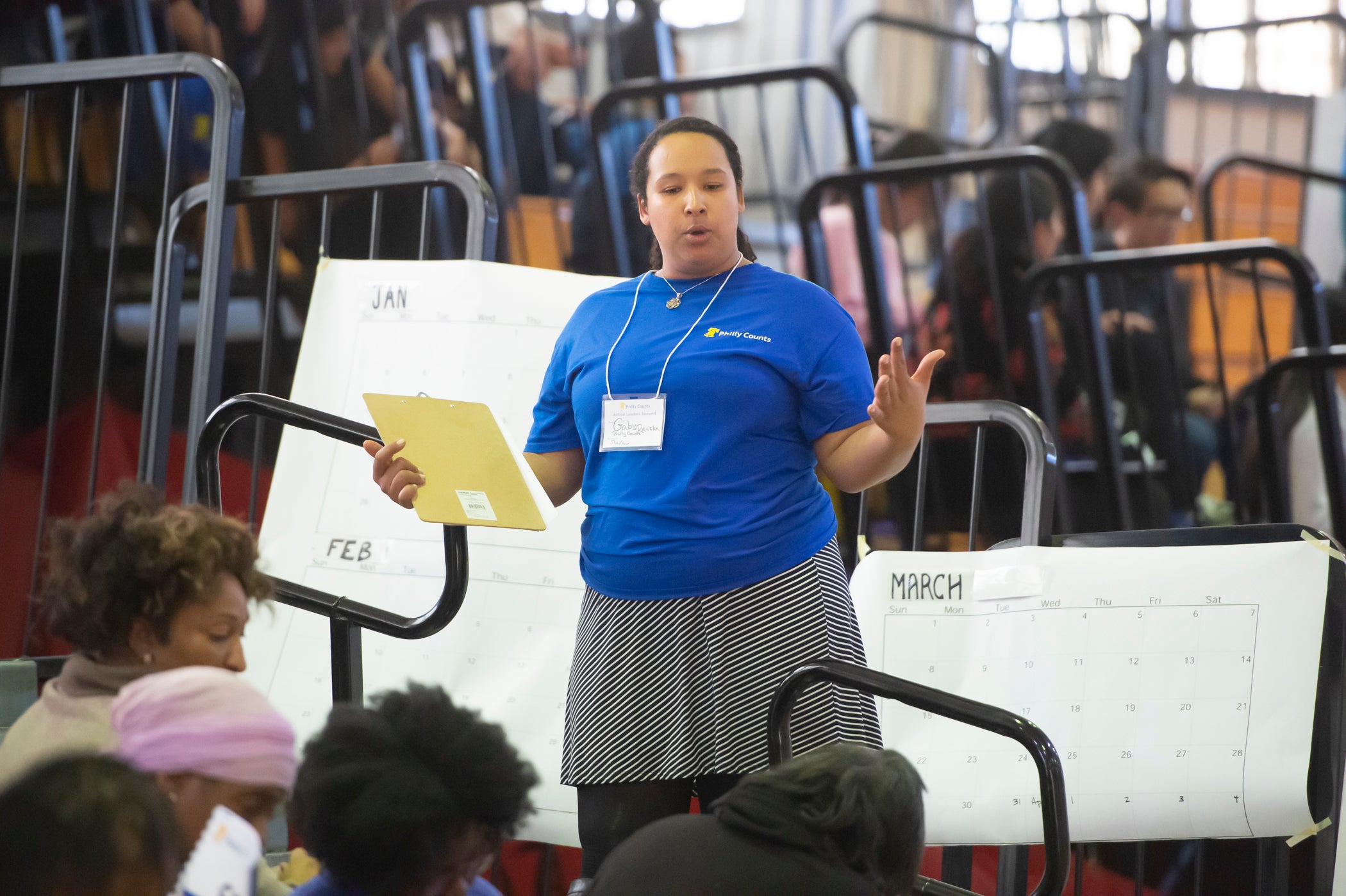
How can communities provide the right, trusted message?
Through a trusted messenger, said Jo Lin, coalition manager for Keystone Counts, a statewide collaboration that has brought 90 nonprofits together for census outreach.
Lin said that coalition is crucial because the census is calculated on a statewide level.
“Even if all of us in this room do an amazing job and get Philly completely, 100% counted, if other areas of the state are undercounted, that ends up hurting us too,” Lin said.
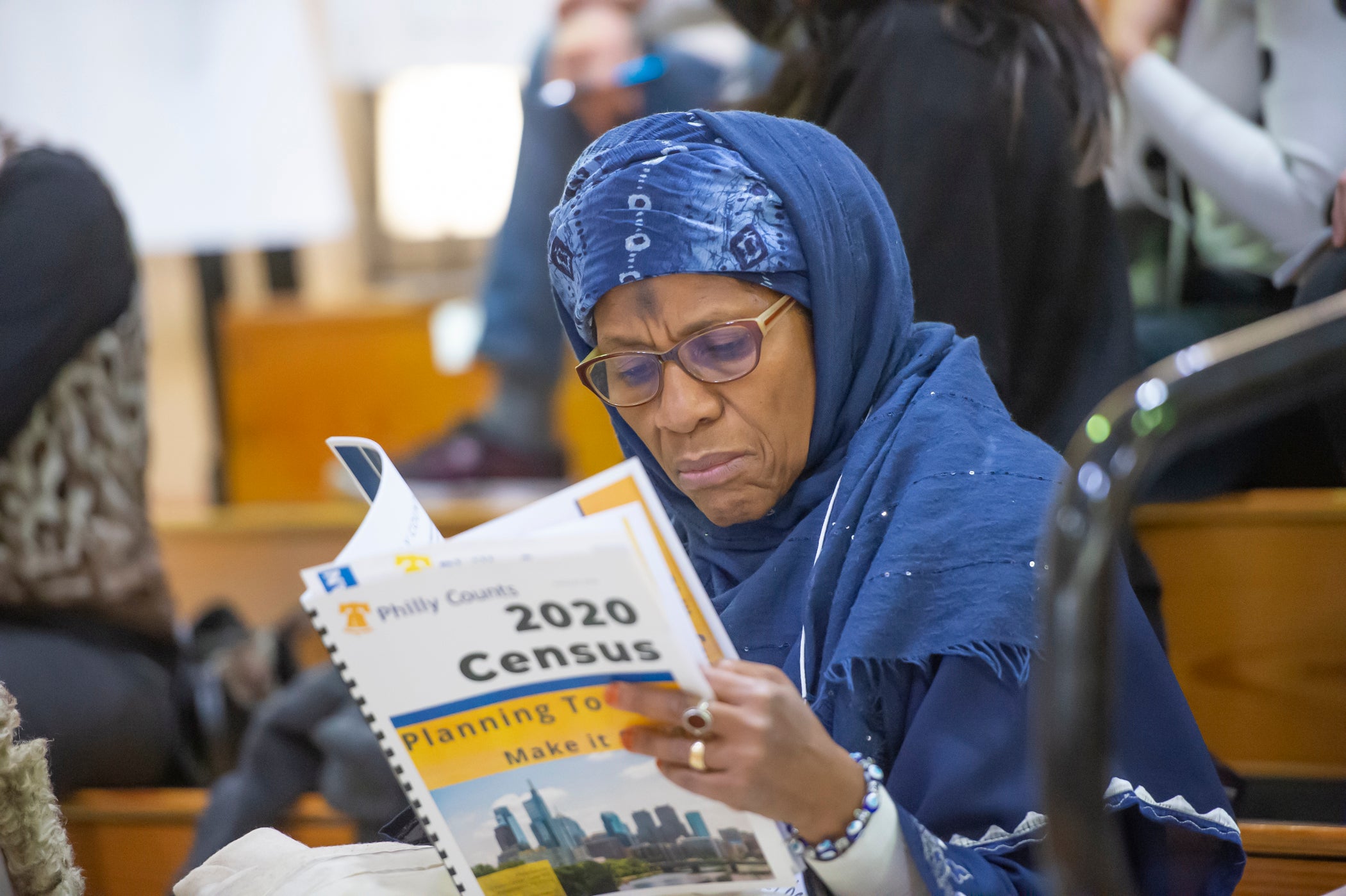
To prevent undercounts across the commonwealth, Keystone Counts has spoken to more than 260 people from Pennsylvania’s immigrant communities and communities of color in 24 counties, to hear how they feel about the census.
In that process, Keystone Counts posed questions such as: What are your existing impressions of the census? Have you heard about it? Do you know the purpose?
After asking those questions (and answering any and all subsequent questions that came up), Keystone Counts moved on to a deep-dive presentation on the role the census plays in funding government and community resources and political representation.
And finally, it asked follow-up questions: Now with all of this information, do you think it’s important to participate in the census? Do you think it will have an impact on your community?
In addition to asking those questions, Keystone Counts tested four different messages on why it’s important to fill out the census: Is funding the most important reason? Or is it about having your voice heard? Is it about political representation? Do you think being counted is important because it’s a civic responsibility?
What the coalition found was that depending on the communities — broken down into Asian American and Pacific Islander, Black and Latinx — the message that resonated was different.
For the AAPI and Black communities, funding for resources and political representation was key. In the Latinx community, given the fear and distrust created by the proposition of a citizenship question, the census was a means of making their voices heard and not being invisible.
Keystone Counts found that after the information session, all three communities reported that over 90% were more likely to participate in the census.
“When people have the information, when they feel empowered to participate, when they understand that this is an opportunity to shape the resources and the representation that their community gets for the next 10 years, that helps us all surmount that barrier of fear,” Lin said.
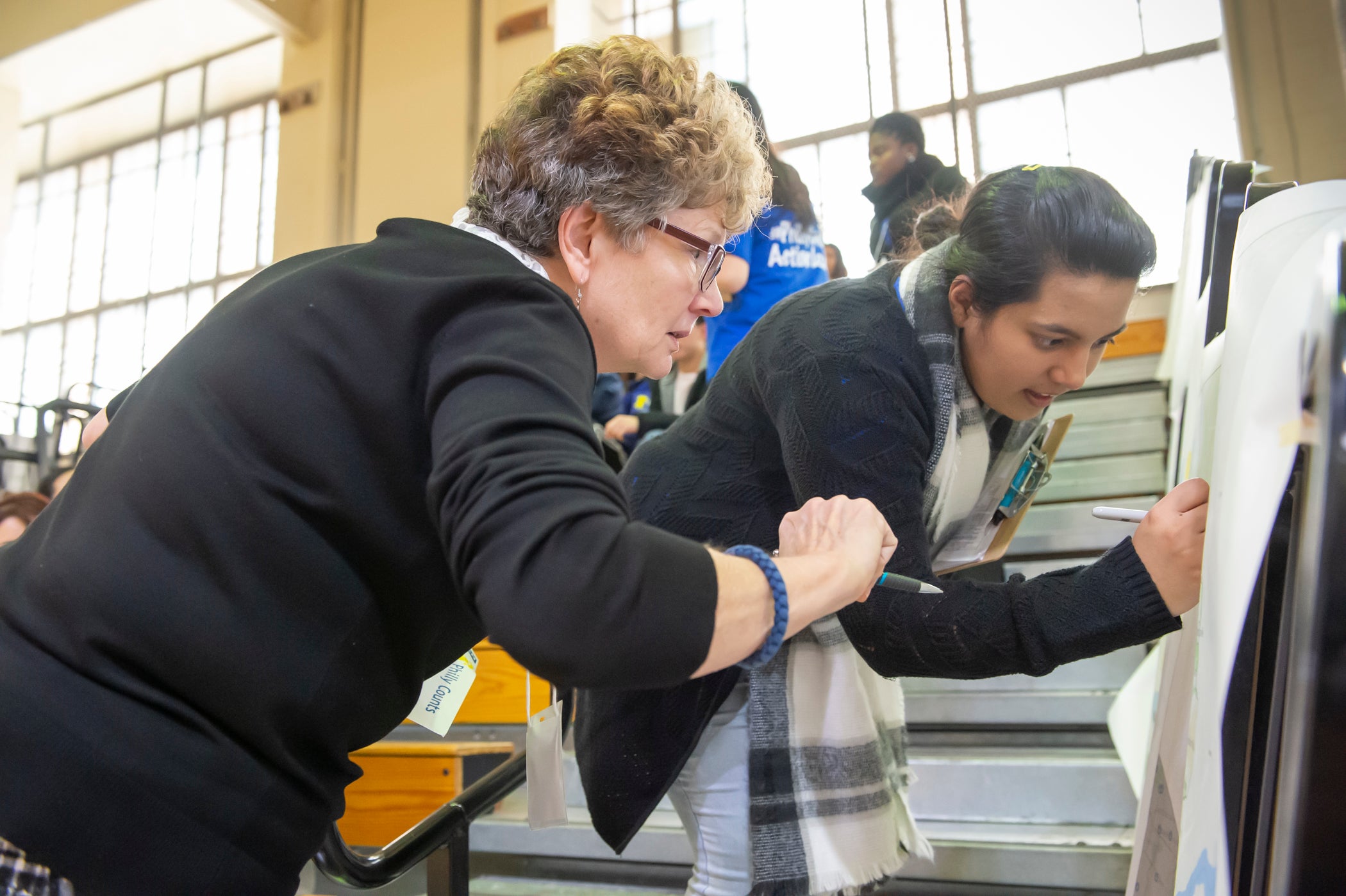
On Saturday, during a neighborhood breakout session in South Philadelphia High’s gymnasium, about 20 West Philly residents and community leaders sat on bleachers and brainstormed how to get those trusted messages to their section of the city, which has historically been undercounted.
There were breakout groups across the school for other neighborhoods too, such as the Northeast and South Philadelphia.

People like Jackie Williams started to shout out churches, schools, community organizations, and city initiatives that are easily accessed and responsive to West Philly residents.
“Greater Bible Way!”
“Overbrook CDC!”
“West Philadelphia High!”
Then the responses were written on flow charts printed on giant Post-It paper. The group also set dates to host U.S. Census Bureau job fairs — Philly Counts’ next big effort after Saturday’s summit.
Williams represented the Lancaster Avenue 21st Century Business Association. She said it will host a census job fair on Jan. 14.
Since LA21 is a business group, Williams said it will be reaching out to local businesses along the Lancaster Avenue corridor, to see if it can set up shop outside the stores to provide information about the census to passersby.
Williams said she thinks funding will play a big factor in getting her neighbors to participate in the census.
“Money talks and everything else walks,” she said. “Hopefully, people will make that connection — that by them by not filling out the census form, that’s some money for services that they aren’t going to qualify for simply because they were not counted.”
The West Philly community leader added that she learned much more about the ramifications of undercounts from the census action summit.
“I also really got a better understanding of the different populations and how there are so many areas of the city that are undercounted … and what kind of concerns they have, and the concerns seem to be almost global,” Williams said.
Philly Counts’ census job fairs will ramp up citywide in January.
WHYY is your source for fact-based, in-depth journalism and information. As a nonprofit organization, we rely on financial support from readers like you. Please give today.



